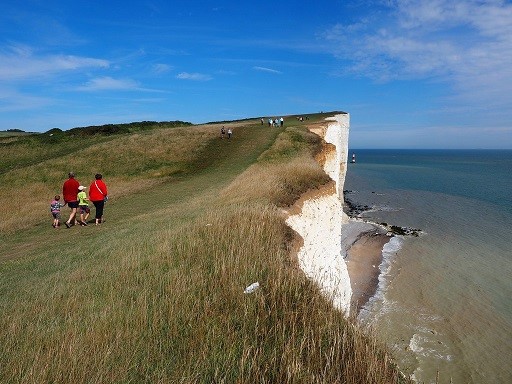Changing landscapes, changing lives:
How can narrative and biographical perspectives improve landscape decision making?
We now realise that landscapes are neither purely natural nor entirely human constructs but emerge as a result of a complex, ongoing interplay between ecological and cultural processes. Yet there remain significant gaps in our understanding.
These are partly due to differences of methodology and approach between the humanities and sciences. Humanities scholars focus on cultural influences whilst scientists work mainly with an ecosystems framework. Divergent scholarly traditions don’t always map easily onto the experiences and concerns of stakeholders, or the needs of policy makers.
Principal Investigator Jeremy Burchardt introduces the project in this short video
Changing landscapes, changing lives seeks to bring together scholars interested in biographical and narrative approaches to understanding landscape. This approach has flourished in recent years in cultural history, human geography, rural sociology and literary, life-writing and cultural studies and has drawn attention from scholars such as environmental psychologists, anthropologists and social ecologists, and environmental scientists. Biographical and narrative methods offer promising opportunities for academic convergence and stakeholder engagement.
The network has three key aims: (1) to explore the interdisciplinary potential of biographical and narrative perspectives on landscape and hence (2) to promote dialogue between scholars working on landscape across the arts and humanities, and social/natural scientists and between scholars and landscape stakeholders with a view to (3) developing research-based concepts, paradigms and models that can inform better landscape decision making.
Fundamentally, the Network aims to improve our understanding of landscapes and why they matter to people, and hence to contribute to better decision making about landscapes and land assets. Stakeholders will have a better understanding of what people value about landscape, changes and continuities, and of how thinking about landscape narratives and the biographical intersection between lives and landscapes may be able to help us make better landscape decisions. Stakeholders will also benefit from integrating their perspectives better into the design, development and outcomes of academic research. It will provide policy makers and implementers with better tools to assess the projected effects of landscape and land assets decisions.
The Network will also help us think about how landscapes can become more diverse and inclusive. We are exceptionally fortunate to have the opportunity to engage with a major visual artists like Ingrid Pollard, whose intervention/exhibition at MERL in association with the Network is certain to draw many visitors, who will benefit from the new ideas, perspectives and connections Pollard will make through the Network. Other marginalized groups will benefit too because a prominent theme for the Network is how we can empower groups and individuals whose voices have often been ignored, or whose needs have not in the past been given adequate consideration in relation to landscape policy and decisions.


